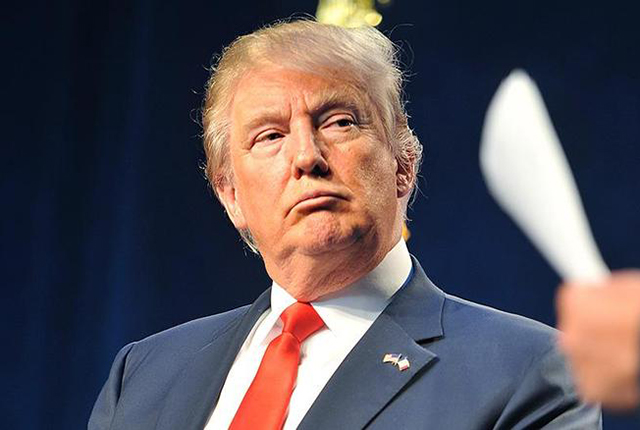A case for renewable energy in Africa


Africa, according to McKinsey’s Brighter Africa report, has 13 percent of the world population, yet 48 percent of the global population are without electricity, 600 million of them being Africans
Tinashe Chikweshe Correspondent
Africa has for long been the dark continent of the world and in terms of energy it has rightly been named so.
The continent was for the longest periods in world history comfortably tucked at the bottom of the pile having missed much of the action happening on the global stage like the industrial revolution.
Wherever there was a mention of Africa it was by mere consequence, as a footnote or as part of someone else’s story. In a nutshell, we have largely been reactive as a continent, instead of being proactive and in the case of energy that case stands sadly true.
It should be concerning that much of the facts and findings and the research on Africa is not initiated by Africans but rather by donors. Non-African research firms supported largely by Western foreign governments and to a lesser extent Eastern governments.
The energy situation in Africa is dire and has been for a long time. It will keep getting worse if no remedies are found to alleviate this impending crisis.
Exactly 60 years after Ghana, the first sub Saharan African country gained independence, Africa still lags behind in terms of infrastructural development and the energy sector. One look at a satellite image of the earth at night and the stark contrast between Africa and North America, for instance, and the difference is shocking, quite unimaginable that there are people living on our beautiful continent.
Africa, according to McKinsey’s Brighter Africa report has 13 percent of the world population, yet 48 percent of the global population are without electricity; some reports put that figure at 600 million Africans that do not have access to electricity.
This alone shows the great deficiency Africa is in and the need then to address that issue head-on and provide for more attention and investment in the energy sector as just one part of a much greater equation.
The above is not optional but an absolute necessity, considering the massive unemployment, slow growth in African economies, yet predicted doubling of the population on the continent by 2040.
The Brighter Africa report by McKinsey and co projects that Africa alone will consume 1 600 terawatts hours by 2040, about four times what it consumed in 2010; the commercial and demand growth from 330 terawatt hours in 2010 to approximately 1100 terawatt hours by 2040.
It is important to note that although not doing big numbers right now in terms of annual GDP growth, the above figures are based on five-fold increase in GDP across sub-Saharan Africa and that doubling in the African population by 2040. An annual growth of 4,1 percent over a 30-year period is envisaged and African GDP rising from $1,3 trillion in 2010 to about $4,7 trillion in 2040 at 2005 constant prices.
It is expected that there will be a jump of 12 percent of people living in urban areas from 38 percent in 2010. This means that at least half the population will be in cities by 2040 and among those who are connected to the grid, electrification rates will rise from 34 percent to 71 percent by 2040.
Already in countries like South Africa they have been successful with their REIPPP programme, which aims among other things to bolster the supply of renewable energy by independent power producers. They are also mulling a potential nuclear deal.
In the DRC, the Great Inga Dam is a proposed hydroelectric dam on the Congo River at Inga Falls with a construction cost of US$80 billion with an installed capacity of 39 000 MW with a 2020-2025 completion date.
Zimbabwe on a smaller scale is increasing capacity at the Kariba Hydro-Plant, with, major refurbishments works also taking place at the Hwange thermal power plant as well as about 30 energy projects that have already applied and in most cases, been granted licenses to generate electricity
Sub-Saharan Africa’s electricity sector will need capital investment of about $835 billion by 2040 to be able to supply the continent’s growing electricity demand.
The opportunity for a real return on invested capital in Africa’s energy needs cannot be denied; the demand is there and growing. Currently most African countries rely on the most primitive of sources for energy that include Biomass (charcoal and firewood) in the rural areas but also on old, dilapidated and ill maintained infrastructure that was in most cases left behind by previous colonial governments. That gap must still be covered.
Africans by and large have over recent years started to make use of more expensive diesel and petrol generators, with the price of this alternative being 3 to 6 times what grid supplied electricity should be costing — where it is available. This highlights an important factor, how much the continent is starved of grid supplied electricity
Most African countries bar Cameroon, Cote d’Ivoire, Gabon, Ghana, Namibia Senegal and South Africa have an average grid access of 20 percent, with Zimbabwe having between 35-49 percent electrification rates.
This is the reason why Africa has started seeing such bold initiatives such as the United Nations Sustainable Energy for All (SEFA), which has attracted more than $120 billion in commitments to the energy sector in Africa.
In 2013 the United States government announced the Power Africa Initiative which underpins the importance of this opportunity.
To those who can act sooner rather than later in addressing this critical and vital part of the African economy, a greater return is possible.
What is needed is bold, fearless Africans, who will champion this cause, leading to a greater than average growth in the African economy, thereby creating much needed employment, a critical factor to poverty reduction. A new African society that is self-sufficient, can produce and see its citizens prosper.
Tinashe Chikweshe is owner and founder of Patava Energy (A company focused on Renewable Energy research in Africa and Project Developer). He can be reached at [email protected]









Comments